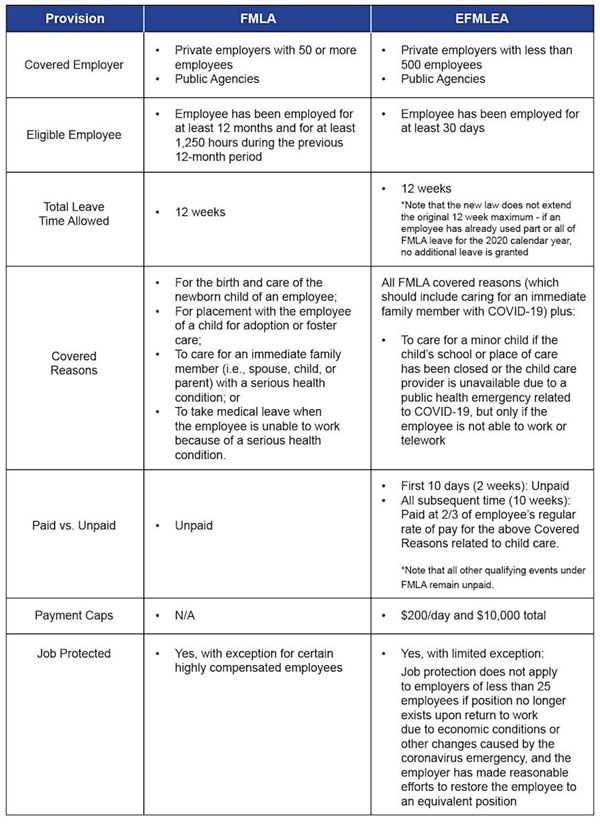On March 18, 2020, President Trump signed House Bill 6201, the Families First Coronavirus Response Act ("FFCRA") into law. The law takes effect on April 2, 2020, and remains in effect until December 31, 2020. The FFCRA amends portions of the FMLA while also providing for paid sick leave in limited cases.
Because of the speed of passage as well as implementation, even the basics of the law can seem confusing to some. We have fielded calls asking: Does this law apply to my business? What has changed from the original FMLA requirements?
Employers need to understand that there are two sets of provisions in the law and each has their own restrictions and applications.
Here is a breakdown of how the provisions of the Emergency Family and Medical Leave Expansion Act ("EFMLEA") -- which applies only for leave taken to care for a minor child whose school or place of care is closed due to COVID-19 -- compares to the original FMLA:

We have previously discussed the paid leave portion of the bill, known as the Emergency Paid Sick Leave Act, in a prior post here.
The key provisions of that Act provide 80 hours of paid sick leave for full-time employees (or pro-rata for part-time employees) for coronavirus-related reasons but limits the conditions in which leave can be taken and caps the daily and total amount of compensation. As noted in our prior post, under Division E of the revised bill, employers must provide paid sick leave if the employee is unable to work, or telework, if the employee:
- Is subject to federal, state or local quarantine or isolation order;
- Has been advised by a healthcare provider to self-quarantine;
- Is experiencing symptoms of COVID-19;
- Is caring for a quarantined individual;
- Is caring for a minor child whose school or place of care has been closed due to COVID-19; or
- Is experiencing any other substantially similar condition related to COVID-19.
Note that unlike the EFMLEA, there is no minimum 30-day requirement to be eligible for the paid leave.
For more information on the Emergency Family and Medical Leave Expansion Act and the Emergency Paid Sick Leave Act, visit our Coronavirus Resource Page.
The content of this article is intended to provide a general guide to the subject matter. Specialist advice should be sought about your specific circumstances.



